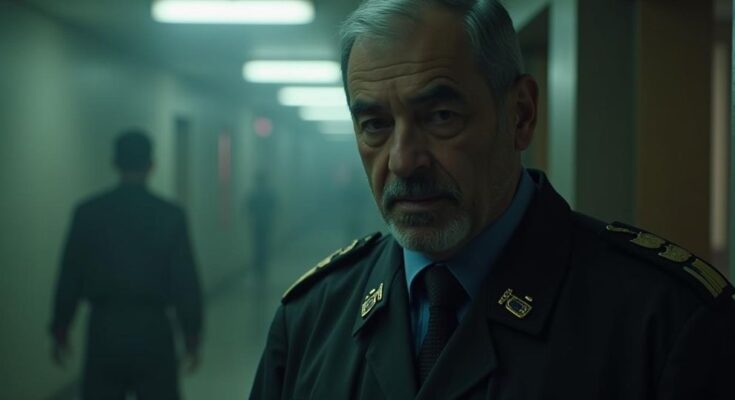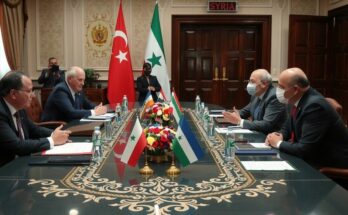Israeli airstrikes in Beirut led to 22 deaths and 117 injuries, targeting Hezbollah’s Wafiq Safa. Concurrently, UN peacekeepers were injured in Naqoura. The conflict has resulted in over 2,000 deaths in Lebanon since October 7, prompting international calls for a ceasefire. Investigations are underway into Iranian military chief Esmail Qaani for possible espionage amid Hezbollah’s leadership crises.
In a significant escalation of hostilities, Israeli airstrikes in Beirut on Thursday resulted in the deaths of 22 individuals and left 117 others injured, in a bid to eliminate Hezbollah’s security chief, Wafiq Safa. However, Safa was reportedly absent from the targeted sites, which were completely destroyed during the assault. Concurrently, Israeli forces targeted UN peacekeeping headquarters in Naqoura, injuring two peacekeepers who subsequently required hospitalization. The ongoing confrontation has strained relations between Israeli forces and United Nations Interim Force in Lebanon (UNIFIL), particularly following Israel’s ground invasion initiated on October 1, which faced obstructions from peacekeepers at the Lebanese border. This latest military action, which has been condemned internationally—including calls for a ceasefire from the United States—highlights the potential for a broader conflict involving Iran and Lebanon. There have been staggering casualties in Lebanon since the onset of hostilities on October 7, with over 2,000 fatalities and millions displaced. The Lebanese Health Ministry reports that in recent days alone, 28 individuals were killed and 113 injured as violence mounted. Additionally, Israeli airstrikes have intensified in Gaza, where an attack on a school sheltering internally displaced individuals resulted in the deaths of at least 27, underscoring the grave humanitarian impact of the ongoing conflict. Amid these developments, there have been renewed calls from the international community, including France and the U.S., advocating for the bolstering of Lebanon’s armed forces in an effort to stabilize the precarious situation along its border with Israel. U.S. Deputy Ambassador Robert Wood emphasized the importance of a strong and legitimate Lebanese military to restore sovereignty and security in the region. Further, U.S. Vice President Kamala Harris asserted that efforts must be directed towards achieving a ceasefire, acknowledging the urgent need for de-escalation in the Middle East. In a separate yet related issue, Iranian military chief Brigadier Esmail Qaani is currently under investigation, amid suspicions of espionage for Israeli forces, following the demise of prominent figures within Hezbollah, including Hassan Nasrallah. Reports suggest Qaani is under house arrest, raising concerns about potential infiltrations within Iranian military ranks. As the situation unfolds, the implications of these military actions, international diplomatic efforts, and potential internal conflicts within Iran will undeniably shape the future of the region.
The Iran-Israel conflict has intensified in recent days, particularly due to Israeli military operations aimed at Hezbollah in Lebanon, which is considered a proxy of Iran. Tensions have escalated following Israel’s ground invasion into Lebanon and their ongoing strikes against Palestinian territories, with significant casualties reported on both sides. UN peacekeepers, tasked with monitoring the situation and maintaining stability, have faced increased attacks from Israeli forces, complicating their role in the region. Internationally, there is mounting pressure for ceasefire negotiations, with calls from major powers like the United States and France aimed at strengthening Lebanese national defense forces to prevent further escalations. The weakening of Hezbollah’s leadership has raised concerns, especially regarding internal security among allied forces in Iran, prompting investigations into espionage.
The recent Israeli airstrikes in Beirut mark a critical juncture in the ongoing conflict, resulting in significant civilian casualties and raising geopolitical tensions in the region. As diplomatic voices advocate for a ceasefire, the international community remains watchful of developments, particularly the implications of internal strife within Iranian military leadership. Amidst a backdrop of humanitarian crises, the urgency for a comprehensive resolution has never been more pressing.
Original Source: www.hindustantimes.com




